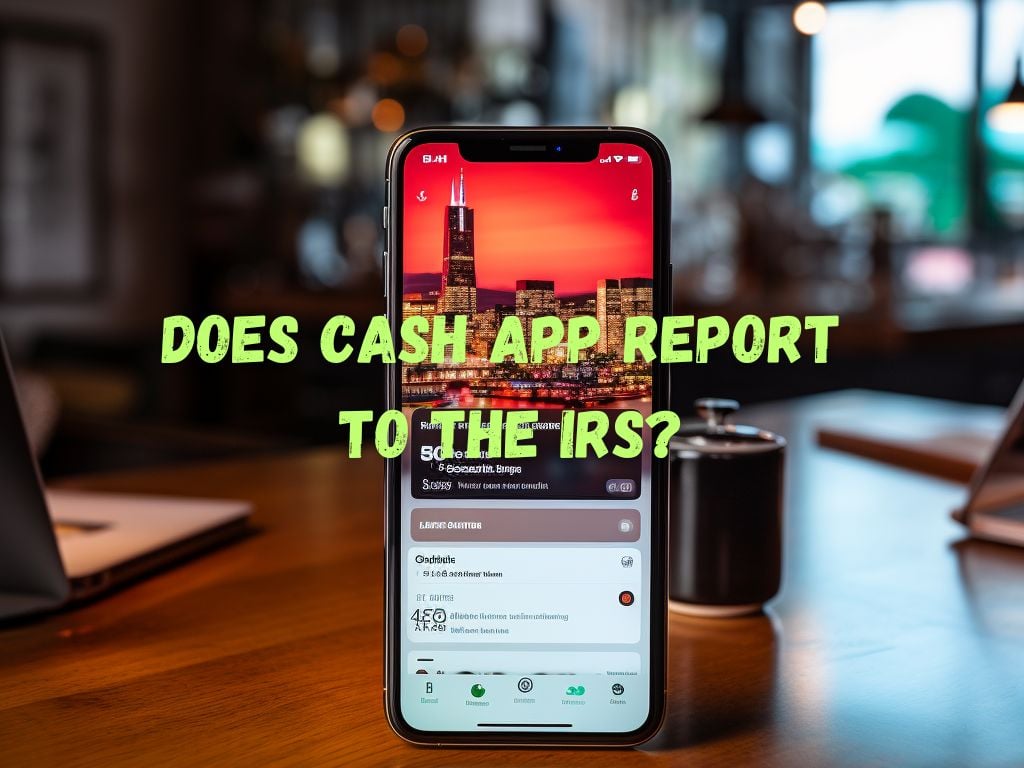Cash App has become a popular payment platform, allowing users to send and receive money easily.
However, as with any financial service, users often have questions about its reporting requirements to the IRS.
In this article, we will delve into the topic of whether Cash App reports to the IRS, and provide you with all the essential information to ensure compliance with tax regulations.
Does Cash App Report to the IRS?
Cash App, like other payment platforms, has reporting requirements to the IRS.
The IRS requires all payment settlement entities, including Cash App, to report specific transaction information to track taxable income and enforce tax laws.
While Cash App does report to the IRS, it is important to understand what transactions are reported and the threshold for reporting.
Transactions Reported to the IRS
Cash App reports transactions that meet certain criteria. Primarily, Cash App reports transactions to the IRS if they involve receiving more than $20,000 or 200 separate transactions within a calendar year.
These thresholds are set by the IRS to track and monitor potential income that should be reported on tax returns.
It is important to note that Cash App does not report personal, non-business transactions, such as funds transferred between friends or family members.
The reporting requirements mainly focus on transactions of a business or income-generating nature.

Accessing Cash App’s Tax Documents
To access your tax documents on Cash App, follow these simple steps:
- Open the Cash App on your mobile device.
- Tap on your profile icon located at the top-left corner of the screen.
- Scroll down and select the “Cash Support” option.
- From the list of options, choose “Something Else.”
- Tap on “Account Settings” and then select “Tax Statements.”
- You should be able to view and download your tax documents, such as Form 1099-K, if you meet the IRS reporting requirements.
Frequently Asked Questions
What happens if I don’t report my Cash App transactions to the IRS?
Failing to report cash transactions to the IRS can have serious consequences. The IRS has various mechanisms and data-matching programs in place to identify unreported income.
If the IRS discovers unreported income, it may initiate an audit, impose penalties, and even pursue criminal charges in extreme cases. It is crucial to report all taxable income to avoid these potential legal and financial consequences.
Can I avoid reporting my Cash App transactions to the IRS?
It is illegal to intentionally avoid reporting taxable income to the IRS. Attempting to hide or underreport income can lead to severe penalties, fines, and legal consequences.
It is essential to comply with IRS reporting requirements and accurately report all taxable income from Cash App transactions.
How does Cash App’s reporting to the IRS affect my taxes?
Cash App’s reporting to the IRS does not directly impact your taxes. However, the transactions reported by Cash App serve as a record for the IRS.
You are responsible for accurately reporting your income and expenses, including those from Cash App, on your tax return. The IRS uses this information to ensure proper tax compliance.
What should I do if I have questions about Cash App’s reporting to the IRS?
If you have any questions about Cash App’s reporting to the IRS or need assistance with tax-related matters, it is advisable to consult a tax professional.
They can provide personalized guidance based on your specific situation and help ensure compliance with tax regulations.

Pro Tips
When it comes to using Cash App for financial transactions and tax reporting, consider the following pro tips:
Keep track of all your business-related transactions separately from personal transactions. Creating separate records allows for easy identification and reporting of income and expenses when it comes time to file taxes. You can use categories or labels to distinguish between personal and business-related transactions.
Regularly review and download your tax documents from Cash App. By accessing and saving your tax documents throughout the year, you can stay up to date and avoid any last-minute rush when tax filing season arrives. This proactive approach saves time and reduces stress.
Consult with a tax professional who specializes in self-employment or small business taxes. A tax professional can provide valuable guidance and advice specific to your situation. They can help you optimize your tax deductions, ensure compliance with IRS reporting requirements, and answer any questions you may have.
Understand the tax implications of using Cash App for both personal and business-related transactions. Cash App primarily serves as a payment platform, but it’s essential to consider any taxable consequences that may arise.
For example, if you receive payments for goods or services through Cash App, you may need to report them as taxable income.
Educate yourself on general tax regulations and keep up-to-date with IRS guidelines. Tax laws and regulations may change over time, so it’s beneficial to stay informed.
Regularly review IRS publications or consult reliable tax resources to stay on top of any changes that may affect your tax reporting obligations.
By following these pro tips, you can better navigate the realm of tax reporting when using Cash App.
It’s important to remember that maintaining accurate records, understanding your tax obligations, and seeking professional advice can help you stay compliant and avoid any unnecessary tax complications.
Conclusion
Understanding does cash app report to the IRS or not is crucial for proper tax compliance. Cash App reports transactions meeting specific thresholds to the IRS, and it is important to accurately report your income on your tax return.
By accessing your tax documents and keeping accurate records, you can ensure a smooth tax filing process and avoid potential penalties.
If you have any questions or concerns, it is always best to consult with a tax professional who can offer personalized guidance. Stay informed, comply with tax regulations, and enjoy the convenience of Cash App responsibly.


 Tags:
Tags:










